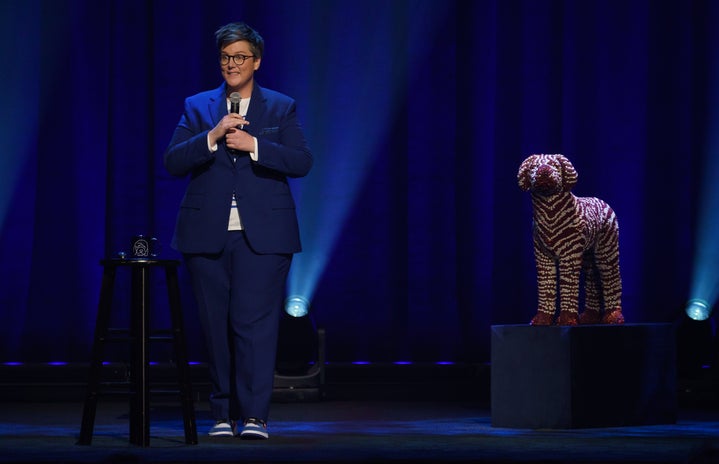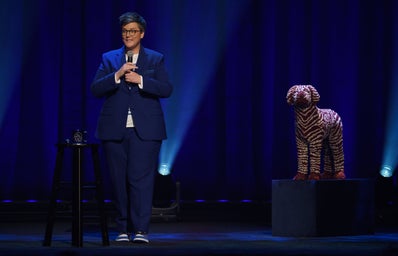For many comedians, performance gigs at colleges are lucrative opportunities that provide an alternative to lesser-paying jobs requiring thankless weeks on the road. However, household names like Chris Rock and Jerry Seinfeld have recently criticized college students for their overblown sensitivity and inability to take a joke. This has led more comics to be outspoken about their perception that performing on college campuses has become a joyless liability undertaken with caution to earn their livelihood. Is this a case of comedians being out of touch and unobservant of modern sensibilities, or are today’s young adults projecting their ideologies onto others and stifling those who disagree?
Caitlin Flanagan states the American undergraduate experience has become more concerned with customer satisfaction than scholarly advancement. Perhaps, with the economic model of college in the United States, this was inevitable. Many colleges offer an array of recreational activities to attract students and secure their immoderate tuitions. These entertainments, however, must cater to the young, politically minded audience to have the intended effect. This creates what many perceive to be a thinly veiled form of censorship in which entertainers deemed too provocative or insensitive are denied the possibility of performing in colleges for fear of antagonizing the student populace. Outspoken critics of this practice, like New York comedian Judy Gold, state nothing will ever be acceptable to everyone and that those distressed by the show are free to leave. Gold feels that those offended by the material should realize this joke does not involve them and adjust accordingly.
Several comedians with a propensity for energizing and engaging crowds are deemed too provocative to perform on the college circuit, despite the overwhelmingly positive reception their work receives in diverse venues throughout the country. It appears the objective of comedy on college campuses is not to provide the highest quality performance but to offer an act void of any controversial material, scoured to be as inoffensive as possible. Many think this mentality contradicts the widely accepted aim of comedy: to discuss possibly unsettling topics, such as race, religion, politics and sexuality, as well as to provoke thought by presenting these issues through the lens of humor. As George Carlin famously stated, “[…] it’s the duty of a comedian to find out where the line is drawn and cross it deliberately.”
At the root of the college comedy debate lies the question of whether jokes can result in consequential harm, or whether hypersensitivity has been taken to an extreme.
Some students would claim the former stating that, whether presented in jest or otherwise, the content comedians put forth has potentially grave repercussions. Making light of serious issues can leave people who have been negatively affected by these topics feeling invalidated. Furthermore, such casual conversation of the issue can reinforce the trauma or subject the individual to reliving the experience. College event bookers express offhand remarks in comedy sets can cause psychological injury, and that it is their job to minimize harm to the fullest extent possible; this involves asking the comic to remove the potentially inflammatory segment from their set, and, if they refuse, they will not be booked. There is also the argument that, while comedians have the prerogative to speak freely, they are hired to perform on college campuses as a job and must conduct themselves according to the expectations and guidelines set forth by their workplace, in this case, the college. Some put forth that the college comedy circuit has the right to enforce restrictions on material, and should a comic take offense to this, they can simply choose to perform elsewhere.
The reality is likely much more nuanced than comedians being discriminately censored by coddled college students, who monolithically feel every aspect of comedy should be perfectly innocuous to all viewers. Nimesh Patel’s performance at Columbia’s annual Asian-American Alliance was cut short due to his material being deemed offensive. Afterward, Patel reflected on his experience in an op-ed published in the New York Times. He mused that the magnitude of support he received after the incident was interesting in that it so sharply contrasted with what the event coordinators expressed to him; several students profusely apologized for his dismissal and a few even attended his later shows. This indicates most do not empathize with the practice of suppressing thought and speech, which appears to be the norm in the college comedy scene. Presently, the situation in college entertainment seems to be a classic case of the vocal minority presenting their view as if it is the most prevalent opinion. Patel emphasizes the futility of propagating the belief that college students are touchy and petulant because this simply leads to deprecatory generalizations about a large group based on the actions of a few individuals — the same behavior the college students themselves display when deeming a set insulting according to the judgments of a few.
Ultimately, whenever a contentious issue is set forth, regardless of personal convictions, it is beneficial to consider that stifling members of the opposition creates a perpetual failure to have meaningful discussions and reach an agreement that both parties find mutually favorable. Suppressing rival perspectives creates a sea of homogeneity, in which dissenters are promptly quelled and the vistas of thought can never be expanded or questioned. A failure to challenge views assuredly abruptly halts progress and creates an inability to effect significant change. It results in prejudicial and frightening worldviews that truly are harmful.

